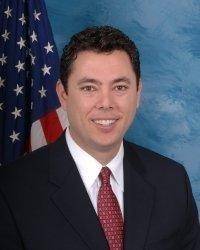Responding to the U.S. Supreme Court’s unanimous holding that law enforcement entities using GPS trackers to monitor vehicle movements without a search warrant violates the Fourth Amendment, today Representatives Jason Chaffetz (UT-03), Peter Welch (VT-At Large), and Bob Goodlatte (VA-06), released the following statements:
“I applaud today’s Supreme Court ruling,” said Chaffetz. “The idea that GPS technology can be used to track somebody without their knowledge, thus violating the personal liberties provided to American citizens under the Fourth Amendment, is flat out wrong. While today’s ruling is a positive step in the right direction, further action is needed in order to prevent the government from tracking people through other devices, like smartphones. Today the Supreme Court laid down the broad principle that location tracking without a warrant violates the Fourth Amendment. It is now up to Congress to enact a comprehensive statute to fill in the details.”
“This is a big win for defenders of privacy rights and civil liberties,” said Welch. “With new devices making it easier to track individuals, there is a great need for clarity on how and when these technologies can be used. Today’s decision is a step in the right direction. I will continue to ensure that the law is updated so that the rights of individuals are protected.”
“I am encouraged by today’s unanimous Supreme Court decision which upholds Americans’ Fourth Amendment rights and confirms the fact that a warrant is necessary for tracking an individual’s movements with a GPS device,” said Goodlatte. “However, the Court stopped short of requiring a warrant for all geolocation information including that obtained from mobile telephones. I look forward to working with my colleagues to pass the Geolocation Privacy and Surveillance (GPS) Act, which protects individual liberty by providing clear guidelines for when and how geolocation information can be accessed and used.”
Representatives Chaffetz, Welch, and Goodlatte, are sponsors of H.R. 2168, the Geolocation Privacy and Surveillance (GPS) Act, bipartisan legislation which creates a legal framework designed to give government agencies, commercial entities, and private citizens clear guidelines for when and how geolocation information can be accessed and used.

